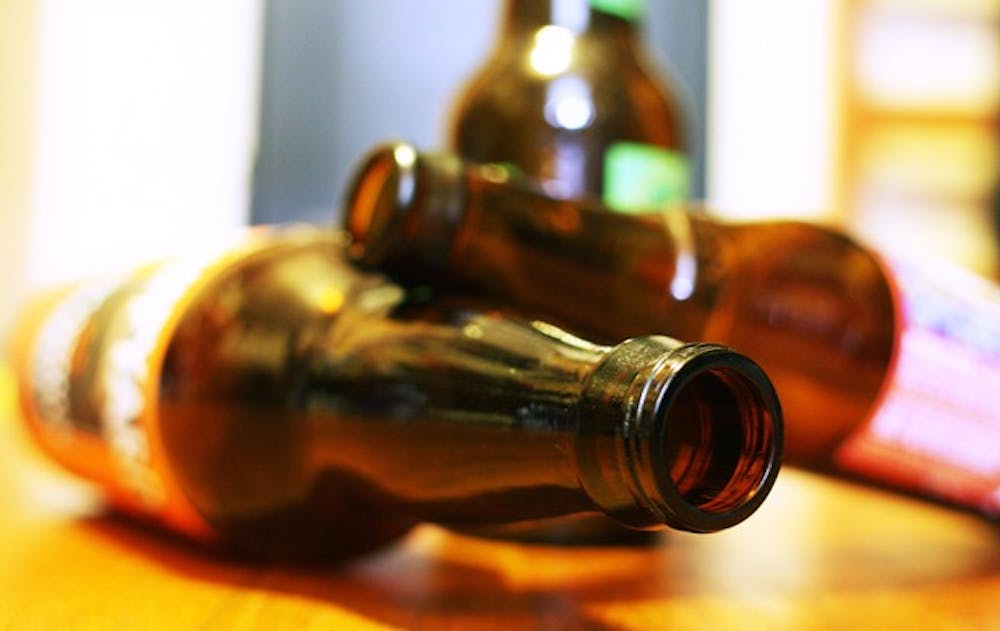Alcohol abuse may be linked to how college students cope with stress, a recent study shows.
Duke researchers at the laboratory of NeuroGenetics showed that alcohol abuse may be directly linked to an individual’s brain function. According to the study, a desire for reward and low regard for risk are two contributing factors to alcohol abuse. Undegraduates handle stressful situations by seeking high reward regardless of consequences were more likely to consume increased levels of alcohol than those who did not. The study was published in the Nov. 14 issue of Biology of Mood and Anxiety Disorders.
“We wanted to have the two systems [reward and risk] and life stress to predict behavior because it is actually quite common among college students,” said Yuliya Nikolova, doctoral student in psychology and neuroscience and primary author of the study.
It is unclear what the exact implications of the study are for Duke students, Nikolova added. For example, though the study investigates the role of stress in problem drinking, it mostly asks about stress related to personal life such as moving away from home. This does not necessarily account for the affect of academic stress which Nikolova acknowledged may play a larger role than average for the decisions of Duke and other university students.
“My guess is problem drinking is a nationwide phenomenon… but I have no reason to believe Duke students are expressing much, much more of [academic] stress on the basis of this study,” Nikolova said.
Past research has investigated the relationship between neural mechanisms of drug abuse risk and dysfunction in neural circuits for reward, but not many studies have been conducted on the relation with neural circuits of threat, according to the paper.
Ahmad Hariri, professor of psychology and neuroscience and co-author of the study, runs a lab that looks at neurological realities as well as genes and other factors. Hariri was unavailable for comment.
The goal is to link them to types of behavior in an effort to predict behavioral and psychopathology risks, Nikolova explained.
During a three-month period, researchers used neuroimaging and self-reported data of 200 undergraduates—mostly Duke students—who participated in the ongoing Duke Neurogenetics Study, the published report stated.
Nikolova added that this particular publication is only a small part of the large neurogenetics project which began three years ago. The recent report uses only a sample size of 200 and the overall study is aiming to eventually have 2,100 subjects. It currently has around 600, she said.
“It’s necessary to track people over a longer period of time [than three months] to see if these factors actually make clinical predictions over longer periods of time,” Nikolova said. “This could lead to us being able to identify individuals who are vulnerable to these kinds of problems, so we could intervene before these kinds of problems happen.”
In the future, Nikolova said she hopes this study will prompt further research at other institutions doing similar research.
Despite the finding of the study, some students noted that common sense is the most important factor in preventing alcohol abuse.
“I don’t binge drink because I like to stay in control of myself—I don’t want to end up in a dangerous or negative situation,” sophomore Catherine Henry said. “My stress levels would increase if I was perpetually hung over.”
Get The Chronicle straight to your inbox
Signup for our weekly newsletter. Cancel at any time.

